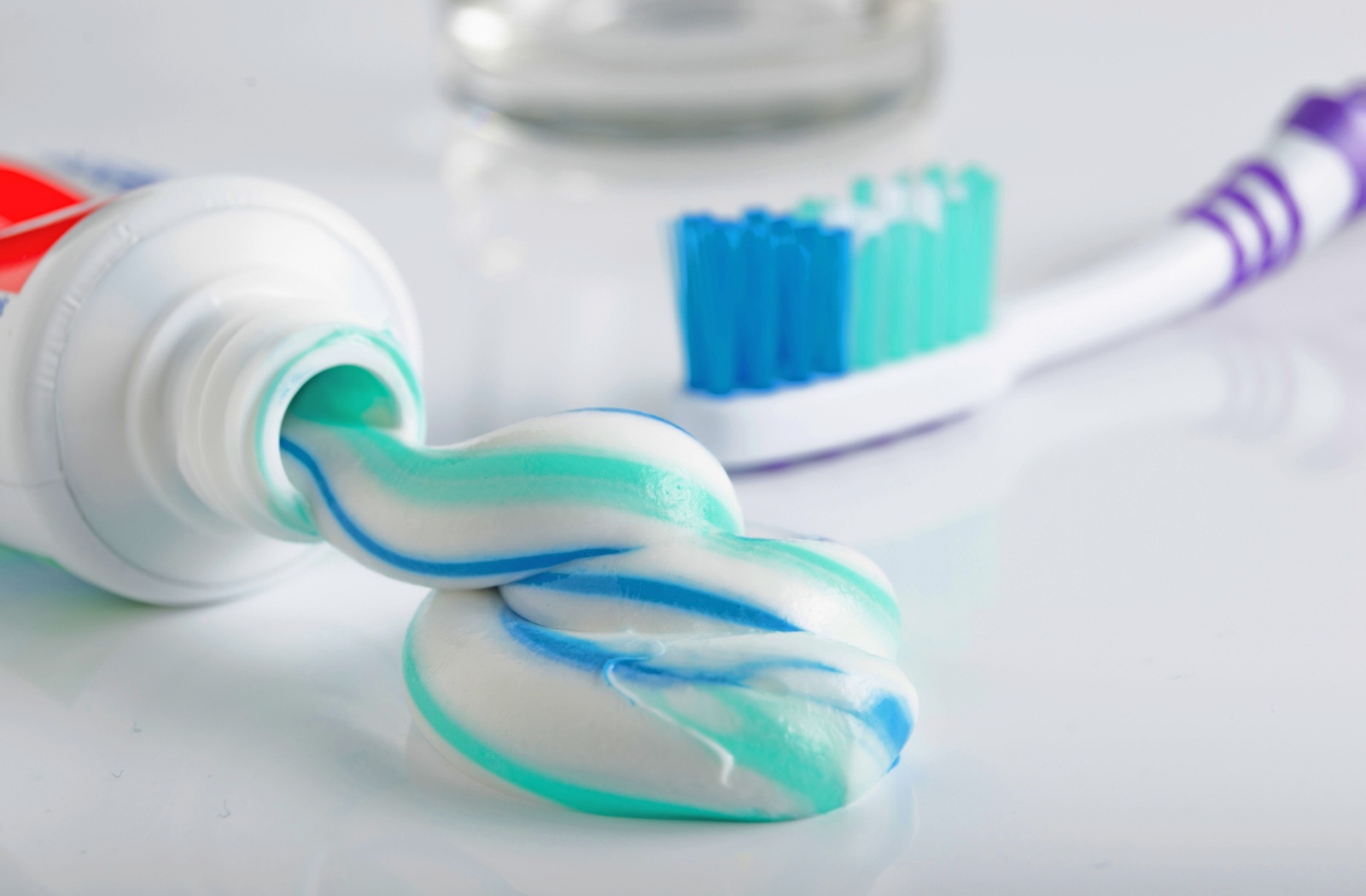Maintaining a healthy smile involves more than just regular brushing and flossing; it also includes using the right oral care products, like toothpaste. But have you ever wondered if toothpaste expires? Yes, toothpaste does expire.
Staying informed about expiration dates and product effectiveness is a simple yet important step in supporting your overall oral health.
What Is Toothpaste & Why Does It Matter?
Toothpaste is a paste or gel applied to a toothbrush that helps clean teeth, protect enamel, and promote overall oral health. Most toothpastes contain fluoride, an essential mineral recognized by the Canadian Dental Association (CDA) for its ability to strengthen tooth enamel and prevent cavities.
The role of toothpaste goes beyond just cleaning. It helps remove plaque, a sticky, bacteria-filled film that forms on teeth, and can also aid in removing surface stains, freshening breath, and reducing tooth sensitivity, depending on the formula.
Does Toothpaste Expire?
Yes, toothpaste does have an expiration date. While it may not become harmful immediately after that date, expired toothpaste gradually loses its effectiveness. The most critical ingredient impacted by time is fluoride, which is responsible for protecting teeth against decay and enamel erosion.
Over time, the fluoride content in toothpaste can break down, meaning the toothpaste will no longer offer the cavity-fighting benefits it once did. Additionally, expired toothpaste may change in texture, colour, or taste and might harbour bacteria or fungi if stored improperly.
How to Know if Toothpaste Is Expired
Most toothpaste tubes have an expiration date printed either on the crimped end or on the box they come in. This date is a guideline for how long the toothpaste will maintain its intended effectiveness.
Signs your toothpaste may have expired include:
- Separation of ingredients, causing a watery or lumpy consistency
- Dry or hardened texture
- Unpleasant or off taste or smell
- Faded colour or discolouration
If any of these signs are present, it’s best to replace your toothpaste with a fresh tube.
What Happens When You Use Expired Toothpaste?
The main concern with expired toothpaste is the loss of fluoride’s protective benefits. Fluoride is key to preventing tooth decay and strengthening enamel, which, once damaged, cannot regenerate naturally.
Using expired toothpaste means you could be brushing without adequate cavity protection. Over time, this can lead to an increased risk of dental problems, such as cavities and sensitivity.
How to Choose the Right Toothpaste
Choosing toothpaste is a personal decision that should be guided by your unique oral health needs. While flavour preference plays a role, the composition of the toothpaste matters most.
Here are the key ingredients and features to consider:
- Fluoride: This is the gold standard for cavity prevention. Look for toothpaste with fluoride and the CDA seal, which indicates the product meets Canadian safety and efficacy standards.
- Abrasives: Ingredients like calcium carbonate and silica help remove food particles and surface stains. However, highly abrasive toothpaste can wear down enamel if overused.
- Whitening agents: Many toothpastes contain mild abrasives or peroxide to help remove surface stains and brighten teeth. Keep in mind that these do not bleach teeth, but rather improve the surface appearance.
- Sensitivity relief: For those with sensitive teeth, toothpastes with potassium nitrate or strontium chloride can help reduce discomfort from hot or cold stimuli.
- Tartar control: Some formulations include ingredients that help prevent tartar build-up, though tartar must ultimately be removed by a dental professional.
- Flavour and texture: Toothpaste comes in many flavours beyond mint, including fruit and herbal options, and different textures such as gels or pastes.
Consulting with a dentist can help determine which toothpaste formulation best suits your oral health goals.
Brushing Technique Is Just as Important
No matter how good your toothpaste is, it can’t work effectively if you’re not brushing properly. According to the Canadian Dental Association, proper brushing technique includes:
- Brushing along the gumline at a 45-degree angle using gentle, circular motions to remove plaque without damaging gums.
- Covering all tooth surfaces, including front, back, and chewing surfaces.
- Brushing for 2–3 minutes twice daily.
- Using a soft-bristled toothbrush with rounded bristles to protect gums and enamel.
- Replacing your toothbrush every 3 months or sooner if the bristles are frayed.
Don’t Forget to Floss
Brushing alone cleans only about two-thirds of the tooth surface. Flossing daily is essential to remove plaque and food particles between teeth where a brush can’t reach. This helps prevent tartar formation, which only a dentist or hygienist can remove.

The Bigger Picture: Oral Health & Overall Wellness
Good oral hygiene is not just about having a bright smile; it impacts overall health. Poor oral health and untreated gum disease have been linked to serious health problems, including cardiovascular disease, diabetes complications, respiratory infections, and complications in pregnancy.
Regular dental visits, along with proper brushing and flossing habits, help maintain oral health and reduce these risks.
Maintaining Oral Health with Professional Dental Care
Routine dental check-ups and professional cleanings play a vital role in preserving your oral health. During a dental hygiene appointment, a dental professional will:
- Perform a thorough visual examination to detect any early signs of decay or gum disease.
- Remove plaque and tartar build-up that cannot be eliminated by brushing and flossing alone.
- Polish your teeth for a smooth, bright finish.
- Provide personalized advice and education to help improve your home care routine.
If you experience anxiety around dental visits, many modern clinics offer a calming environment with amenities designed to enhance comfort and ease.
Keeping Your Smile Healthy with Centennial Smiles
Toothpaste expiration is an often overlooked factor in dental care, but it matters. Using fresh, effective toothpaste with fluoride helps you get the full benefit of cavity protection and oral cleanliness.
For personalized advice and professional dental care, contact us at Centennial Smiles to help you maintain a healthy, beautiful smile for years to come.



